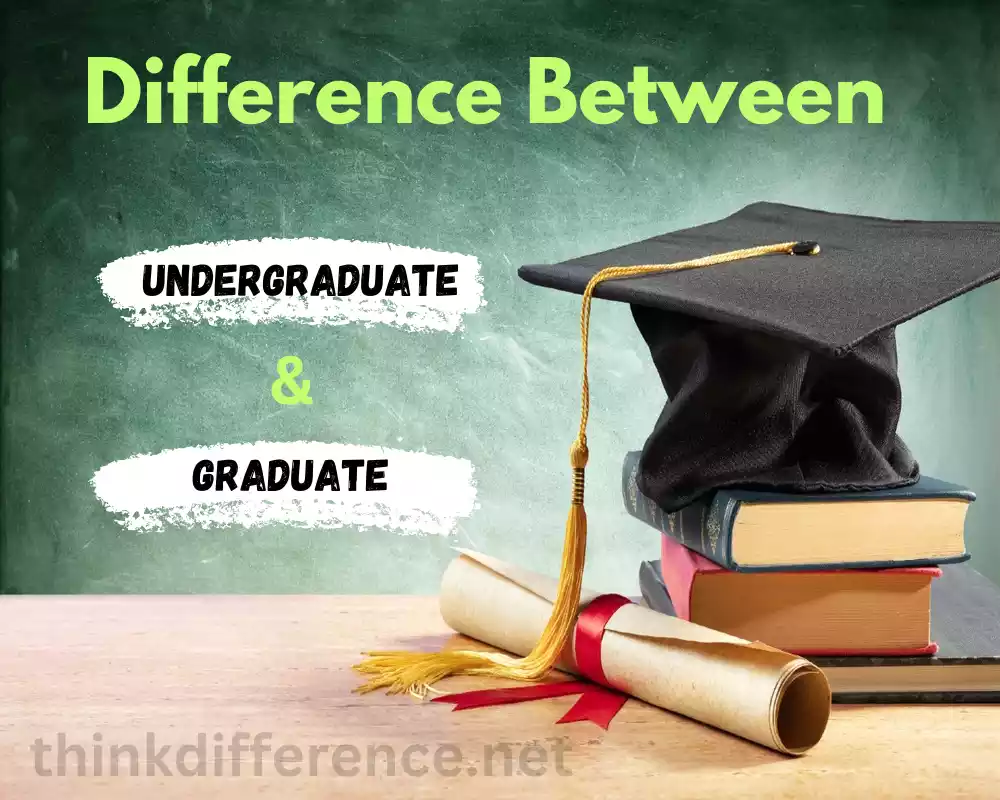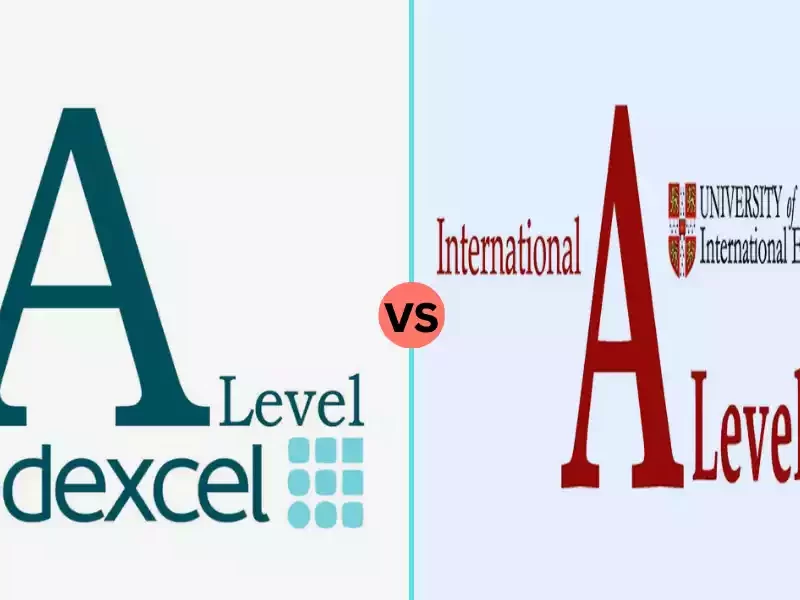Undergraduate and Graduate studies play a fundamental role in an individual’s educational pathway, offering endless possibilities and opening up doors of growth both personally and professionally. We will discuss both types of studies along with their unique features to help determine what route best matches up with your academic and career objectives.
Definition of undergraduate
Undergraduate: Undergraduate education refers to the initial phase of higher education that follows secondary schooling and precedes graduate-level studies. It encompasses the programs and courses pursued by students seeking their first bachelor’s degree. Undergraduate education typically provides a broad and foundational knowledge base in various disciplines, offering students the opportunity to explore different academic areas before specializing in a specific field.
It is a crucial stage where students develop critical thinking skills, gain knowledge in diverse subjects and lay the groundwork for further academic or professional pursuits.

Graduation: Graduation education refers to higher-level studies undertaken by those who have completed undergraduate education and hold either a bachelor’s or master’s degree. Graduate programs aim at equipping individuals with skills specific to one field of study while leading them closer towards earning masters or doctoral degrees or professional accreditations.
Graduate education entails courses or research and/or practical training that build on knowledge gained during undergraduate studies. Graduate education typically offers in-depth studies focused on specific fields or capabilities developed through undergraduate study. Typically this type of training involves mentoring by professors as well as self-directed research or thesis writing independently with fellow students in academia. This prepares graduates for future opportunities within research, academia or industry or similar professions.
Importance of understanding the difference Undergraduate and Graduate
Understanding the difference between graduate and undergraduate education is vitally important for anyone contemplating furthering their studies or earning advanced degrees.
Here are several reasons to emphasize its value:
- Academic Preparedness: Recognizing the disparities between undergraduate and graduate education helps individuals assess their academic readiness for the challenges that lie ahead. It allows students to evaluate their skills, knowledge and motivation required for the more rigorous and specialized nature of graduate studies.
- Career Planning: Understanding the distinction assists individuals in making informed decisions regarding their career paths. Certain professions may require or highly value graduate degrees, while others may emphasize gaining practical experience or entering the workforce after completing undergraduate education. Knowing the expectations and requirements of different career fields helps individuals align their educational choices with their career goals.
- Program Selection: Awareness of the differences between undergraduate and graduate education aids in selecting the appropriate program of study. Graduate programs provide advanced and targeted knowledge and training in specific fields, allowing students to pursue areas that interest or excite them the most. With such information in hand, potential students can make educated decisions regarding whether pursuing masters- or doctoral level professional certification would best fit with their goals in their desired fields of endeavor.
- Academic Planning: Knowing the distinction between undergraduate and graduate education assists students in planning their academic journeys effectively. It helps individuals map out their educational progression, considering prerequisites, admission requirements and the time commitment associated with graduate studies. Understanding the differences can help students set realistic goals and create a roadmap for their educational pursuits.
- Financial Considerations: Recognizing the distinction between undergraduate and graduate education is crucial when assessing the financial implications. Graduate programs often involve additional costs, such as higher tuition fees, specialized resources and extended study periods. Understanding these financial factors allows individuals to plan and budget accordingly, explore financial aid options, scholarships, grants or opportunities for assistantships.
- Intellectual and Personal Growth: Understanding the difference between undergraduate and graduate education promotes personal and intellectual growth. Graduate school provides the chance for cutting-edge studies, critical analysis and engagement with current expertise in any given field. Graduate school also fosters independence of thought as well as creativity that leads to new capabilities that contribute towards both professional and personal success.
Understanding the difference between graduate and undergraduate education helps individuals make informed choices regarding their career and academic paths and programs. They can select appropriate ones taking into consideration financial implications while staying open-minded regarding possibilities that graduate studies present for advancement and growth.
Undergraduate
Undergraduate studies represent the first phase of higher education that students pursue after completing secondary education, leading to earning of their first Bachelor’s Degree.

Here are a few features and characteristics of undergraduate degrees:
-
- Duration: Undergraduate education typically lasts four years, though this duration may differ depending on your program of choice and country of residency. Certain bachelor’s degree programs can be completed in as few as three years while medical or engineering-focused degrees could take much longer to finish up.
- Admission Requirements: Undergraduate programs typically require at least an equivalent qualification from high school for admission. Exact admission requirements will depend upon each institution but typically consist of high school graduation requirements or equivalent, standardized test scores (e.g. SAT/ACT scores), transcripts of academic work completed thus far and letters of reference/personal declarations/comments submitted prior to enrolling.
- General Education: Undergraduate studies place great importance on providing their students with a well-rounded education, typically consisting of a core program or general education requirement that exposes them to various academic fields such as sciences, humanities and social sciences – including mathematics – while helping develop critical thinking, communication and problem-solving capabilities in students.
- University Programs Offer Diverse Courses: University programs provide many classes across various fields of study for their students to investigate prior to choosing their major. A broad array of courses helps develop understanding in various academic disciplines.
- Foundational Knowledge: Undergraduate education aims at building an enduring base of knowledge and abilities for its students, through providing fundamental concepts as well as theories and methods applicable to their chosen major/area of study. The curriculum gives them access to an in-depth knowledge of subject and sets the groundwork for future specialized studies.
- Bachelor’s Degree: Graduating successfully from undergraduate school will result in the award of an undergraduate degree based on your area of study. Bachelor of Arts (B.A. ), Bachelor of Science (B.S.) or the Bachelor of Business Administration (BBA or BE). Achieving these milestones constitutes success at graduation and proves your knowledge and expertise within that particular subject area. A bachelor’s degree demonstrates your accomplishment of this initial step along your academic career.
- Undergraduate Study as Prep for Career: Undergraduate study can assist students in finding entry-level employment across industries or provide the foundation necessary to further education with graduate studies. While certain professions may require additional graduate or professional qualifications for employment purposes, bachelor’s level study often serves as sufficient training in basic competencies that transfer well to working environments.
An undergraduate degree serves as an entryway into higher education, offering classes, knowledge-based classes and ultimately leading to an undergraduate degree. Students pursuing this route build an academic base which exposes them to various disciplines while helping prepare them for future career pathways or master’s research at advanced stages in their careers or research endeavors.
Graduate
Graduate education (also referred to as postgraduate study) refers to any advanced studies pursued after completion of undergraduate education and receipt of their Bachelor of Arts or Science.

Here are several key characteristics and features that characterize graduate education:
-
- Duration of Graduate Studies: The duration of graduate studies varies widely depending on their field of research. Master’s degrees usually require at least two full years while doctoral programs could last as little as three months or even less based on factors like research requirements, completion of thesis or dissertation as well as subject area research activities.
- Admission requirements: Admittance into graduate programs typically requires attainment of at least a bachelor’s degree or its equivalent from an institution or university, along with certain specific admission criteria that vary between institutions and universities such as minimum GPA requirements or standard tests such as GRE or GMAT scores as well as letters of recommendations from prior academic experiences or letters declaring purpose or work experiences and declaration of purpose declaration or writing example submission requirements. Some programs also may mandate research proposals or writing examples prior to entry.
- Specialization: Graduate education primarily centers around specific studies within one discipline or field of study. Students typically select an area such as engineering, psychology business biology to focus on during graduate education courses and research within that specific subject area. Curriculum programs aim to give them in-depth information as well as advanced skills training tailored specifically for that discipline or field of study.
- Advance Level Classes: Graduate degrees offer advanced and specialized coursework than undergraduate. Courses designed to increase knowledge in specific subjects as well as provide skills applicable to field of study are taken. They frequently involve critical issue analysis, research and advanced conceptual frameworks.
- Research or Thesis Component: A majority of doctoral and master’s level graduate programs now require students to conduct research as part of the curriculum or write a dissertation or thesis. Participating in research helps expand current knowledge by conducting experiments or academic analyses that expand current horizons within their fields. It strengthens students’ capabilities of conducting independent investigations while expanding thinking critically as well as problem solving independently.
- Degree Types: Graduate school can lead to advanced degrees like Master of Arts (M.A. ), Masters of Science (M.S.) or the Doctorate degrees like Doctorate in Philosophy and Education respectively (PhD, EdD or other similar titles), there may also be professional degrees like those awarded to Doctors of Medicine such as M.D or J.D, depending on your area of research and course type.
- Career Prospects: Graduate education can significantly boost an individual’s prospects by equipping them with knowledge, advanced skills and proficiency in one specific area. Graduate degrees equip graduates for positions in research, academia, institutions, industry as well as professional environments such as laboratories. Many professions such as scientists professors researchers psychologists lawyers doctors require advanced degrees as a minimum requirement of entry-level employment.
- Connectivity and Networking: Graduating studies gives students the chance to connect and network with experts, professionals and peers working in their respective field. Graduate students typically collaborate together with professors on coursework or projects as a form of joint collaboration, participate in research partnerships through conferences attended, or form academic communities that foster connections among professionals as well as intellectual growth.
Graduation marks an advanced study level built upon the foundation laid during undergraduate education. Graduation offers in-depth knowledge, research opportunities and specialization options that equip graduates for career advancement or leadership roles within their fields of study.
Admission Requirements for Undergraduate and Graduate Programs
Admission requirements to undergraduate and graduate programs differ based on both level and institute/program of study, here’s an outline of those requirements for both types.
Undergraduate Programs:
-
- High School Diploma or Equivalent: Before being considered for admission into an undergraduate program, students must have successfully completed secondary education and earned either an official High School Diploma or its equivalent or completed equivalent work experience.
- Academic Transcripts: Applicants are usually required to submit their academic transcripts, including grades or marks earned in previous education. These transcripts provide a record of academic performance and help admissions committees assess the applicant’s qualifications.
- Standardized Tests: Most undergraduate programs require their applicants to provide results from standardized tests such as the Scholastic Assessment Test or American College Testing. These tests assess an applicant’s aptitude in areas like math, reading and writing.
- Application Form: Prospective students are required to complete an application form provided by the institution or through a centralized application system. This form collects information about the student’s personal details, educational background, extracurricular activities and sometimes includes essays or personal statements.
- Letters of Recommendation: Certain undergraduate programs require letters of recommendations from counselors, teachers or others who can verify both an applicant’s academic capabilities as well as character and potential.
- Personal Statement or Essay: Most undergraduate programs require applicants to submit an essay or personal statement outlining their motivations, goals and suitability for the course they are enrolling in. This essay allows applicants to showcase their writing skills and express their unique qualities and experiences.
- English Language Proficiency: For international students and applicants whose primary language isn’t English, showing proficiency by taking standardised tests such as to EFL (Test of English as a Foreign Language) or IELTS (International English Language Testing System) might be required for admissions consideration.
Graduate Programs:
-
- Bachelor’s Degree: To qualify for graduate degrees, candidates usually need an undergraduate degree from an accredited university that fits with the subject matter for which they want to enroll in their desired graduate program.
- Academic Transcripts: Applicants need to submit official transcripts from their undergraduate institution(s) to demonstrate their academic performance and achievements.
- Standardized Tests: Some graduate programs, particularly in certain fields such as business (GMAT or GRE) or law (LSAT), require applicants to submit scores from standardized tests. These tests help assess an applicant’s readiness for advanced study.
- Application Form: Similar to undergraduate programs, applicants must complete an application form specific to the graduate program or institution. This form captures personal information, educational background, work experience and often includes statements of purpose or research interests.
- Letters of Recommendation: Graduate programs usually require letters of recommendation from professors, employers or professionals who can provide insights into the applicant’s academic abilities, research potential or professional accomplishments.
- Statement of Purpose or Research Proposal: Many graduate programs ask applicants to submit a statement of purpose or a research proposal. This document outlines the applicant’s academic and research interests, career goals and reasons for pursuing graduate studies in the specific field.
- Resume or Curriculum Vitae: Candidates may be expected to provide a CV that details their academic credentials, experience in their chosen field and studies/research/presentations history as well as any achievements which pertain to the job being pursued.
- English proficiency for undergraduate programs: As with undergraduate programs, applicants from abroad or international students with languages other than English must prove their English language skills by taking standardised tests like IELTS or TOEFL to demonstrate proficiency.
Admission requirements can differ considerably between programs and institutions, as well as requirements specific to certain disciplines or fields. Students interested in enrolling should visit their desired programs’ or institutions’ official sites to gain up-to-date admission requirements and information.
Curriculum and Coursework
Graduate and undergraduate curriculum have been carefully planned in order to give students an in-depth and systematic education in their chosen area of study. There are some significant distinctions between them that students should keep in mind:
Undergraduate Curriculum and Coursework:
-
- Broad Foundation: Undergraduate programs typically have a broader curriculum that exposes students to a wide range of subjects. Students enrolled must take general education classes across a broad array of fields such as science, math, social sciences, humanities and the arts to meet the Foundation’s goal of providing an extensive educational experience with knowledge gained across disciplines.
- Core Requirements: Undergraduate programs have core requirements specific to the chosen major or field of study. These courses provide foundational knowledge and skills essential to the discipline. For example, a business major may have core courses in accounting, marketing, finance and management.
- Electives: Undergraduates often have the flexibility to choose elective courses within their major or across different disciplines. Electives allow students to explore specific interests, broaden their knowledge or tailor their education to align with their career goals.
- Predefined Course Sequences: Undergraduate programs typically have a predefined course sequence that students need to follow to fulfill degree requirements. The sequencing ensures a progressive and systematic acquisition of knowledge and skills. Prerequisite courses must usually be taken prior to beginning higher-level classes.
- Classroom Instruction: Undergraduate coursework is primarily delivered through classroom instruction. Students attend lectures, participate in discussions, and complete assignments, projects, quizzes and exams. Focus will be given on developing foundational knowledge essential for grasping complex ideas, as well as mastery of problem-solving and critical thinking abilities.
- Limited Research Component: While some undergraduate programs may offer research opportunities or capstone projects, the research component is generally less extensive than in graduate programs. Undergraduates are more focused on acquiring knowledge and building a solid foundation rather than conducting original research.
Graduate Curriculum and Coursework:
-
- Specialization: Graduate programs are more specialized and in-depth compared to undergraduate programs. Students choose a specific area of study within their field and concentrate on advanced coursework in that area. The curriculum is designed to deepen knowledge and develop expertise in a particular subject.
- Advanced Courses: Graduate coursework consists of advanced-level courses that delve into specialized topics, theories and research within the chosen field. These courses expand on the basic knowledge acquired during undergraduate study and provide more in-depth examination of a subject matter.
- Research Focus: Graduate programs place a significant emphasis on research and scholarship. Students engage in independent study and research projects under the guidance of faculty advisors. They may be required to conduct literature reviews, design experiments, collect and analyze data or develop theoretical models depending on their field of study.
- Seminar-style Instruction: Graduate coursework often involves seminar-style classes where students actively engage in discussions, critical analysis and presentations. These classes promote intellectual exchange, collaboration among peers, and the development of advanced analytical and communication skills.
- Thesis or Dissertation: Many graduate programs require students to complete a thesis or dissertation as a culminating requirement. A dissertation or thesis represents a substantial research undertaking designed to demonstrate students’ capabilities of conducting independent investigations, contributing original information in their area of focus, and successfully communicating results to an audience.
- Specialized Tracks or Concentrations: Some graduate programs offer specialized tracks or concentrations within the field of study. Students can customize their studies around subjects or subfields of particular interest to them, further expanding their understanding and expertise within that subject or subfield.
Graduate and undergraduate level coursework and curriculums are designed to equip students with complete understanding in their fields of interest. Graduate programs offer a deeper level of specialization, research focus and advanced coursework to prepare students for advanced careers or further academic pursuits.
Duration of Study
Time of Study in Graduate and Undergraduate Programs can differ according to country, program and whether full- or part-time enrollment occurs.
Here’s an outline of their respective study periods:
Undergraduate Programs:
- Bachelors Degree: Full time academic studies typically last four years in most countries; this may differ according to country – for instance in the U.S. four year undergraduate programs tend to last four years while three year programs may be more prevalent elsewhere such as Britain. Programs with specific or additional requirements could take even six or five years longer to finish.
- Honors Programs and Cooperative Education: Certain undergraduate programs offer extended programs known as honors or extended programs that give an extra year for deeper studies or research as well as hands-on experiences. Co-op education combines work experience and academic studies for an additional two years to the bachelor’s degree process.
Graduate Programs:
- Master’s Degree: The duration of a master’s program varies widely by country and program type. Typically full-time master’s programs usually last one or two years while professional or research thesis components could take more than two. Part-time studies may extend this timeline.
- Doctoral Degrees: Doctoral programs or research degrees formally known as Ph.D.s can take three to six years or longer and involve extensive original research before the student submits his/her doctoral dissertation for submission. Typical duration for doctoral programs can range between three and six years or even beyond, depending on your area of interest, research requirements, level of development of each student as well as any additional academic obligations you might need to fulfill during that timeframe.
Keep in mind that these lengths should serve only as general guidelines; actual durations may differ based on individual circumstances, requirements of programs, student learning levels and part-time study options available across both undergraduate and postgraduate programs allowing students to extend the length of their studies while still meeting other obligations.
Prospective students looking into studying should contact the institution and program they intend on joining for more precise details of course duration and requirements.
Comparison table of Undergraduate and Graduate
Here is a table outlining some of the major distinctions between graduate and undergraduate programs:
| Category | Undergraduate Program | Graduate Program |
|---|---|---|
| Level of Study | First level of tertiary education | Advanced level of tertiary education |
| Academic Rigor and Expectations | Generally less rigorous and demanding | More rigorous and demanding |
| Curriculum and Coursework | Broad-based with general education requirements | Specialized with advanced coursework |
| Research Focus | Limited research component | Emphasis on research and scholarly activities |
| Duration of Study | Typically 3-4 years full-time | 1-2 years for master’s, several years for Ph.D. |
| Teaching and Learning Methods | Classroom instruction and exams | Seminars, research projects, and discussions |
| Opportunities for Professional Development | Limited specialization and professional training | Specialized skills and advanced professional development opportunities |
| Admission Requirements | High school diploma or equivalent | Bachelor’s degree and specific prerequisites |
| Career Opportunities | Entry-level positions and further education | Specialized roles, leadership positions, academia |
| Financial Considerations | Tuition fees, scholarships, and financial aid | Higher tuition fees, assistantships, and funding |
| Transitioning to Graduate | Admission process and completion of requirements | Meeting specific requirements for acceptance |
Career Opportunities and Advancement
Both undergraduate and graduate education can provide career opportunities and avenues for advancement, although the level of opportunities and the types of roles may differ.
Here’s an overview of career opportunities and advancement possibilities for both levels:
Undergraduate Programs:
- Entry-Level Positions: Upon completing an undergraduate degree, graduates can pursue entry-level positions in various industries and fields. These positions provide foundational experience and opportunities to apply the knowledge and skills gained during their undergraduate studies.
- Professional Certifications: Students pursuing various fields may pursue professional certifications or licenses that enhance their job prospects and could help enhance job security. These certifications demonstrate specialized knowledge and skills and may be required or preferred by employers in certain industries.
- Further Education: Some students choose to pursue further education after completing their undergraduate degree. These may include enrolling in graduate programs, advanced degrees (such as medicine or law) or attaining specific certifications. Further education can open up advanced career opportunities and positions of greater responsibility.
- Career Advancement: With relevant work experience, demonstrated skills, and continuous professional development, individuals can advance in their careers within their chosen field. They may move into managerial or leadership roles, take on more complex projects and have opportunities for increased responsibility and higher salaries.
Graduate Programs:
- Specialized Roles: Graduate education provides in-depth knowledge and specialized skills in a particular field. This can lead to opportunities for specialized roles within industries or professions. Graduates often have a competitive edge in fields that require advanced expertise, such as academia, research, healthcare, engineering and business.
- Research and Development: Graduate programs with an emphasis on research are likely to prepare their graduates for careers in research and development environments such as research institutes, academic institutions or industrial settings that allow them to innovate by creating new technologies or expanding knowledge bases in their respective fields. These graduates could then find employment with research institutes, academic institutions or industrial settings which allow them to contribute further advancement by research processes or innovation projects that contribute directly or indirectly to progress within those industries.
- Leadership and Management Positions: Higher degrees, such as master’s and doctoral, can equip people for leadership positions within their fields of endeavor. These positions may involve overseeing teams, departments or projects and making strategic decisions that shape the direction and growth of an organization.
- Teaching and Academic Careers: Graduate education can open doors to teaching and academic careers. Graduates holding advanced degrees may qualify for academic positions such as professor and lecturer positions at colleges and universities. They can contribute to knowledge dissemination, mentor students and engage in research and scholarly activities.
- Entrepreneurship and Consulting: Graduate studies equip students with critical-thinking, problem-solving and analytical abilities that are invaluable in consulting or entrepreneurial roles. Graduates may start their own businesses, offer specialized consulting services or work in consulting firms, providing expert advice and solutions to organizations.
- Professional Networks and Opportunities: Graduate programs often provide opportunities to build professional networks through collaborations with faculty, peers and professionals in the field. These networks can lead to career opportunities, collaborations on research projects and connections within the industry.
At all levels of study and career advancement, one must recognize that advancement opportunities depend on many different elements, including your field of study and the trends within an industry. Your personal experiences, skillset and dedication towards professional growth; as well as continuous learning with up-to-date industry news and building a solid professional network – these things all play a role. By staying current on industry updates as well as cultivating these networks you may increase both graduate and undergraduate opportunities over time.
Cost and Financial Considerations
Financial and cost considerations play an essential role in both graduate and undergraduate education.
Here are a few key points that you should keep in mind:
Undergraduate Programs:
-
- Tuition Fees: Undergraduate education costs depend heavily upon its institution, country of origin and program of study. Tuition fees differ widely between private and public schools with private ones typically costing more. Foreign students might pay additional tuition costs than local students depending on which country they come from.
- Grants and Scholarships: Many institutions provide undergraduate students with grants and scholarships based on academic ability, financial need or other criteria. These grants and scholarships may help pay college tuition expenses as well as related costs such as textbook costs. It’s crucial that they apply early. To maximize your chance at finding suitable grants or scholarships early, do your research beforehand!
- Financial Aid: Undergraduate program students might qualify to participate in financial aid programs like student loans and work-study opportunities provided by institutions or the government agency. Such aid programs help cover educational costs through various payment channels available within an educational institute or agency.
- Living expenses: In addition to tuition expenses, students should also consider living costs such as accommodation food meals transportation books and personal expenses. Cost of living varies based on location and lifestyle choices made.
Graduate Programs:
-
- Cost of Tuition Fees: Graduate school costs, such as master’s and doctoral degrees, tend to be significantly more costly than undergraduate studies. Tuition rates depend on each program as well as its institution – thus for an accurate picture, it is wise to study and compare tuition rates between institutions/programs so as to gain an idea of costs associated with attendance at graduate programs.
- Assistantships and Fellowships: Many graduate programs provide assistantship and fellowship opportunities, whereby students work as research or teaching assistants for research programs or classes they are taking; in exchange, these students receive either a stipend or tuition reimbursement payment that helps reduce financial strain while giving invaluable experience within research or academia.
- Awards and Scholarships: Much like students enrolled in undergraduate programs, graduate program students may qualify for grants and scholarships depending on both academic achievement as well as research abilities or any additional criteria that need to be met for entry. Applying and researching relevant grants specifically targeted for graduate school is therefore vitally important.
- Funding research: Graduate students involved with research can benefit from other funding opportunities through grants, projects or collaborations between companies or universities and themselves, which may provide grants or collaboration funds that cover costs related to research – be they travel expenses or equipment acquisition costs. These can all help cover research-related expenses.
- Loans and Financial Assistance: Financial Assistance and Loans graduate students could qualify for student loans as well as various forms of assistance offered by private or government organisations, so it is crucial that they explore all potential loans programs available and understand any associated terms or requirements before signing on the dotted line.
- Part-Time Work: Some graduate students choose part-time work as an option to offset the costs of studying, yet still fulfill academic responsibilities and achieve academic success. Finding an equilibrium is crucial if this option is chosen by you.
Potential students should carefully consider and research the costs associated with higher education, explore available financial aid options and create a suitable budget to manage these expenses. Furthermore, seeking advice from financial aid offices or advisors at respective institutions will give valuable information regarding specific financial planning requirements as well as available resources.
Conclusion
Both Undergraduate and Graduate education have their merits, and the decision ultimately depends on your career goals, financial situation, and personal interests. Undergraduate education provides a broader learning experience, while graduate education offers specialization and career advancement. Whatever path you choose, remember that education is a lifelong journey that opens doors to countless opportunities.



